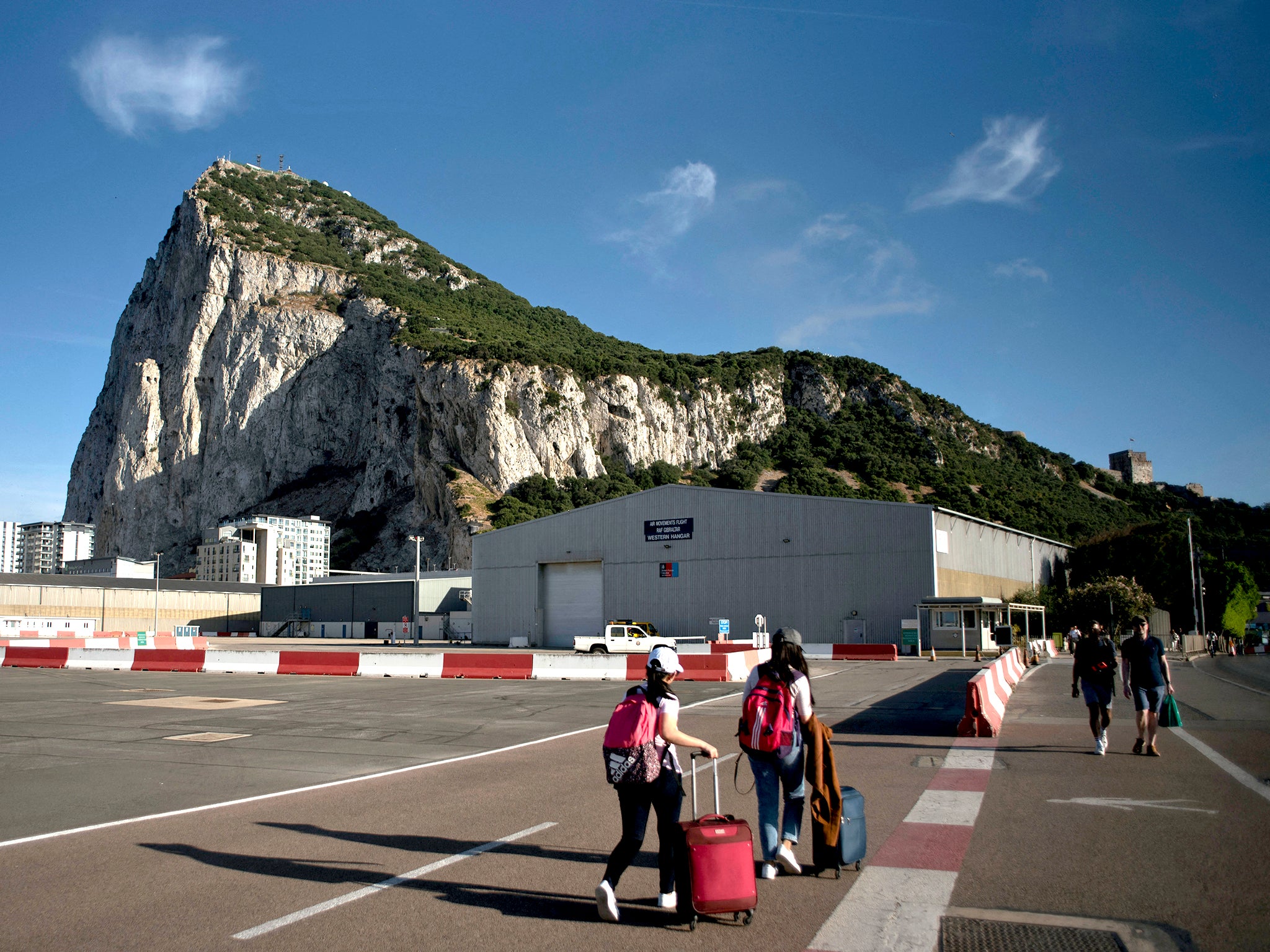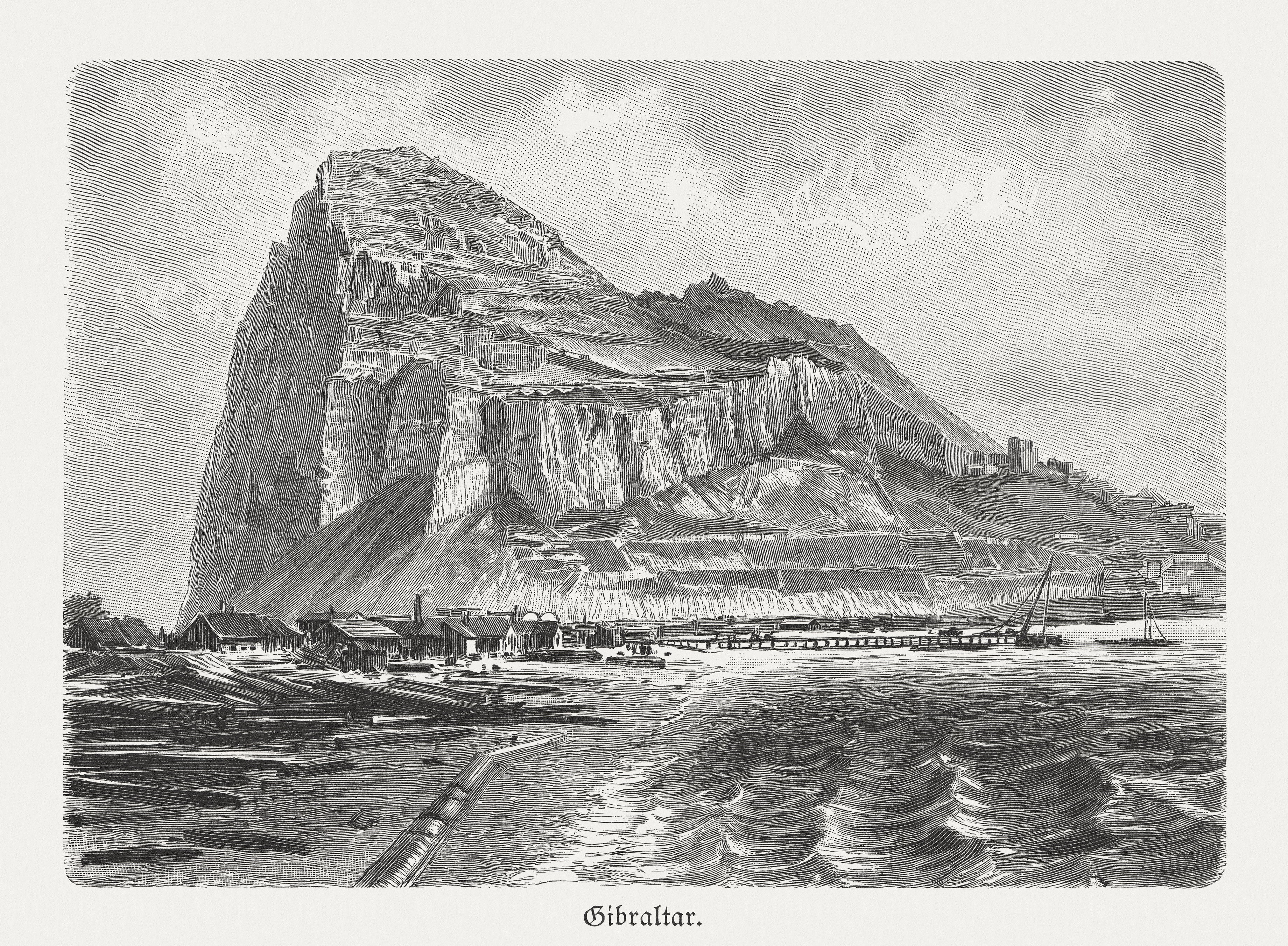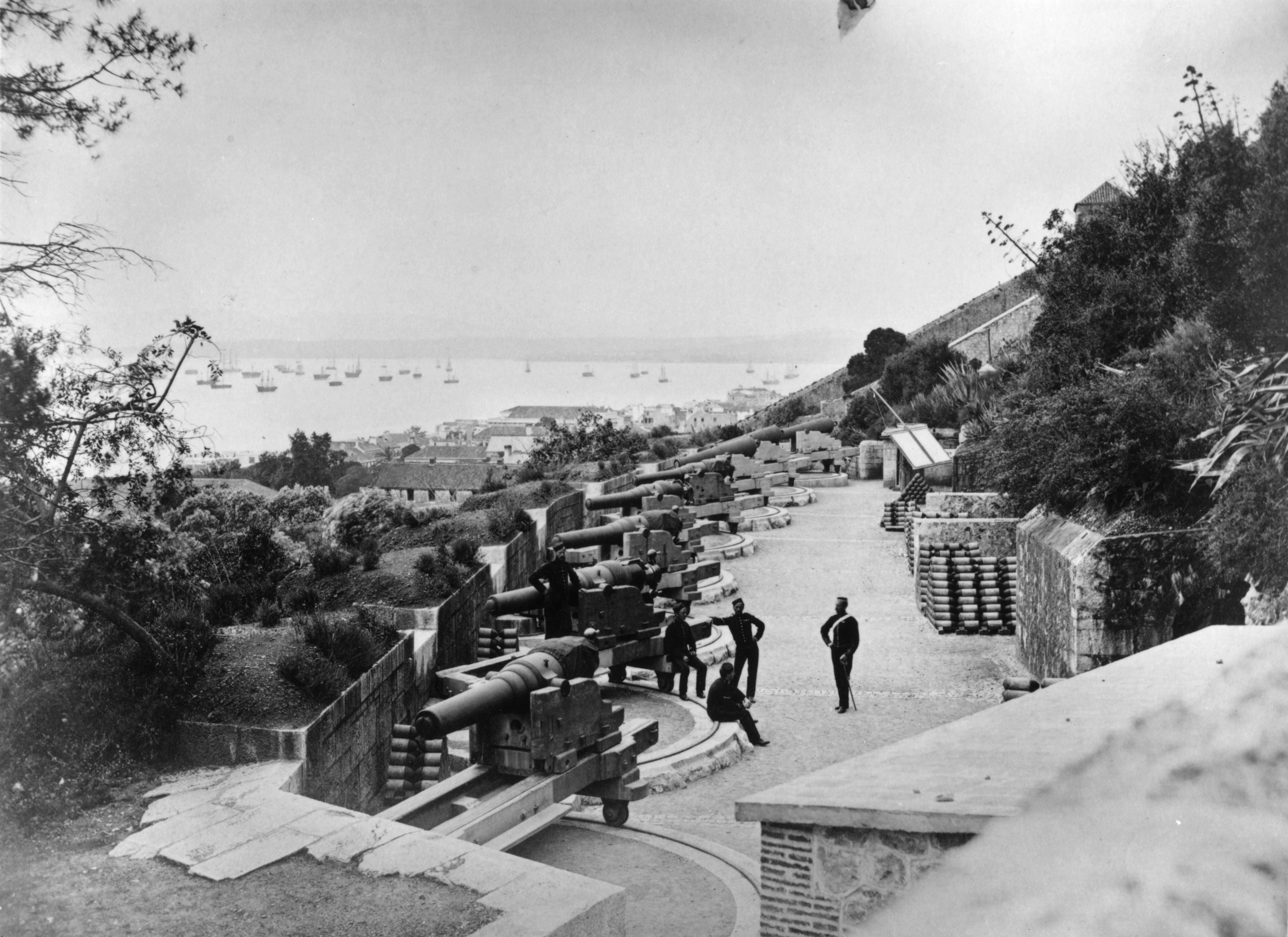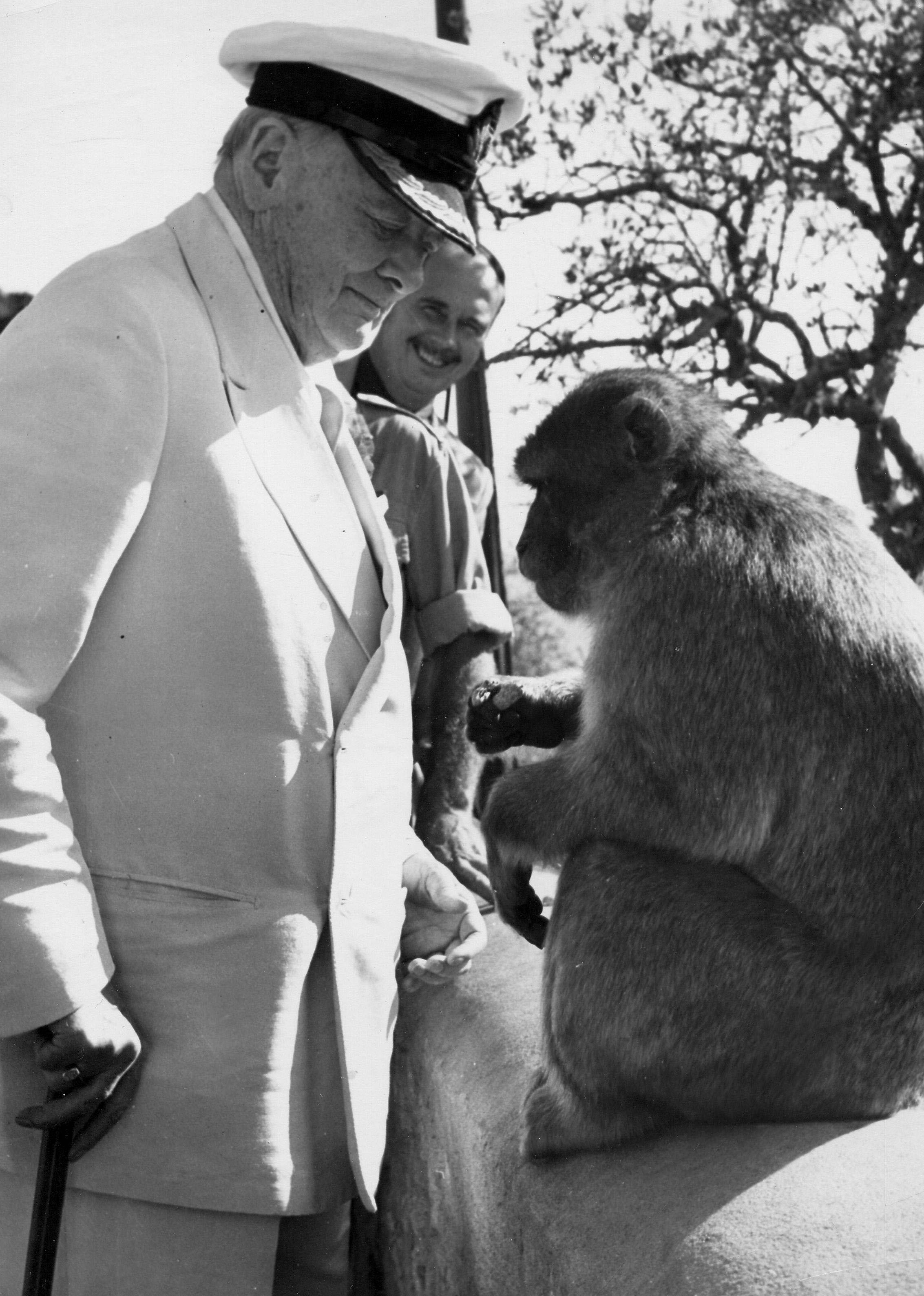Everything comes back to territory: How Brexit is still causing tensions in Gibraltar
For the past five years, the UK, Gibraltar, Spain and the EU have been locked in tense negotiations over a new treaty for the territory. Sarah Sands visits to see what is on the line for this strategic military port and the residents who live there


As our plane approaches Gibraltar, the British Airways pilot announces that there is a southwesterly breeze, which is in fact a warning. It means very strong cross winds that can then lead to the phrase you least want to hear: “divert to Malaga”. A Spanish landing over the border puts hours on the journey. When our captain makes a second attempt with a bracing landing on the short Gibraltar runway and a bone-shaking reverse thrust, he gets a round of applause. I ask a Gibraltarian passenger if they had thought of making the runway longer and they sigh. Everything comes back to territory.
The 18th-century traveller and antiquarian Francis Carter wrote: “The shape and face of Gibraltar Rock is neither promising nor pleasing and it is as barren as uncouth, not a tree or a shrub hardly to be seen on it above the town … On casting an eye up this barren hill, one would not imagine any living creature could exist upon it.”
And yet it is fiercely loved by Gibraltarians of different races and faiths, united by British passports, who have been waiting five years to hear the outcome of a new treaty which is still yet to be signed.
Gibraltar is British but the waters are disputed. Usually, a nation would claim 12 miles from land but the UK makes do with three, because 12 across the bay takes you pretty much to the Spanish coast. Air space is also contentious. British military planes are not permitted to fly over Spanish air space, although Spain is a Nato ally, and those taking off from Gibraltar perform an immediate sharp turn to keep within the bay. Then there is the disputed status of the isthmus, the road between Spain and Gibraltar which includes the runway.
Since Brexit, the issue of free movement between Spain and Gibraltar has become more vexed. A new treaty, negotiated between Gibraltar, Spain, the UK and the EU, has so far taken nearly five years and, according to Gibraltar’s chief minister, is in its final stages. Like the Windsor Framework in Northern Ireland, it attempts to solve the border protocol that came with Brexit.
As Gibraltar’s chief minister Fabian Picardo tells me dryly: “Brexit is the gift which keeps on screwing us.” During the referendum, around 96 per cent of Gibraltarians voted to remain in the EU.
Within living memory is the last closure of the border by dictator Francisco Franco from 1969 until 1982, fully reopening in 1985 in readiness for Spain’s accession to the European community. During that period, the hospitals of Gibraltar ran out of oxygen. To keep Gibraltar functioning it needs a form of Schengen for 15,000 daily workers who swell the resident population of about 35,000.
This workforce, who fill roles in hospitals, schools and in hospitality and construction, need to be able to cross the border from Spain without checks. An illustration of what could happen without the treaty was an incident last October when the Spanish police issued an order to start checks, without political authority. Queues stretched for miles and the working day was paralysed. A red line for Gibraltar is no Spanish police across their border. Both sides also need a customs union.

Exports from Spain to Gibraltar amount to around €1bn and Gibraltar is the second biggest employer in the region after the Andalusian government, so a treaty should, in theory, be in Spain’s interest.
But both sides are anxious about smuggling. Spain talks of Gibraltar’s reputation for cheap booze and cigarettes. Gibraltar notes that its crime rate is extremely low and there are some well-known crime gangs in the La Linea region of Spain. Meanwhile, border crossings can be used for grumpy reminders that Spain does not accept the self-governance of Gibraltar, which it refers to as a “British colony”.
There was a recent spat in which a Spanish newspaper claimed that the governor of Gibraltar, Sir Ben Bathurst, a distinguished military figure, had crossed the border for a family Christmas holiday without proper authorisation. His office replied that all documents were provided and his passport had been stamped.

Spain seeks to undermine Gibraltar’s status wherever it can. It challenged the right of Gibraltar’s football team to join UEFA and for the UN to remove Gibraltar from the United Nations’ list of non-self-governing territories. Gibraltarian minister and lawyer Nigel Feetham has just recently returned from Brussels where he has been challenging Gibraltar’s relegation to a grey list on regulation despite the territory meeting all the correct technical requirements.
I have come to Gibraltar with some vague conceptions and misconceptions. I know it is a strategic military port and sure enough, there is a US nuclear submarine, prompting complaints from the Spanish government. I remember it was used as a refuelling base during the Falklands war and also it was where Prince Charles and Princess Diana started their honeymoon. I tried to visit it during a holiday in Spain in the early 1980s and gave up on the long border queue.
I know about the apes. Winston Churchill used to demand that they be counted and protected to counter the myth that Gibraltar would no longer be in British hands if they left the Rock. The welfare of the apes remains one of the obligations of the current governor of Gibraltar.

The garrison town still looks authentic, particularly since rock forms many of the public buildings. Even the GBC media building resembles a bunker. One of the tourist attractions is the tunnel in which General Eisenhower operated during the Second World War (while sleeping more comfortably in the governor’s residence).
But once here, I also find a gangbuster economy based on gaming, insurance and seafaring. There is also a healthy trading relationship with the UK. Total UK exports to Gibraltar were £4.6bn in 2024 while Gibraltar’s exports to the UK were £2.5bn. Meanwhile, with a highly educated and skilled workforce, with university tuition fees for Gibraltarians at UK universities paid for by the Gibraltar government, the territory seems to have more lawyers in its 2.6 square miles than anywhere except perhaps Wimbledon.
Its crime rate is so low that the local newspaper records a missing motorbike helmet and an altercation leading to a cut ear. If there is a burglary, the plentiful police force checks who has been released from prison. In a small population, everyone knows everyone.

And Gibraltarians have a sense of identity carved in the Rock of history starting with the treaty of Utrecht, signed in 1713 in which Spain ceded to the British crown “the full and entire ownership of the city and castle of Gibraltar, together with its port, defences and fortresses”.
This treaty has been challenged ever since by Spain, most dramatically during the great siege of 1779 when Spain severed all communication with Gibraltar and cut off all supplies. Territorial exchanges evoked passions then as they do now. Spain backed American independence hoping in exchange to get support for its reclaiming of Gibraltar. During the three-year siege, the king of Spain would ask each morning: “Is it taken?”
Bitterness over Brexit is still raw. During the great siege, no fresh produce was allowed and Gibraltar was down to near starvation rations. Today, Gibraltarians joke that only Brexit has deprived them of fresh UK produce since. Picardo says of the promises of the Brexiteers: “What I would say to Michael Gove is that he got it wrong on experts, he got it wrong on Brexit. I am not going to take any advice from him on any aspect which relates to the Gibraltar economy.”
He speaks more highly of this Labour government and of foreign secretary David Lammy’s pledge: “Nothing about you without you.” Although it is of course a former Labour foreign secretary, Jack Straw, along with Peter Hain, who has Guy Fawkes status in Gibraltar, for the proposal in 2002 for joint sovereignty with Spain.

So what is holding up the new treaty with Spain? Fabian Picardo pleads discretion, saying only it is time for all parties – the UK, Spain, the EU and Gibraltar – to hold hands and jump now. An EU source tells me that Spain is fixed on the airport, which it claims is not in Gibraltar territory as listed in the Treaty of Utrecht. If Spain claims the airport, it would effectively isolate Gibraltar.
In the joint statement on progress in April last year, when David Cameron was foreign secretary, the airport was mentioned. “General political lines have been agreed, including on airport, goods and mobility.” But it has gone quiet since.
Picardo has been in power since 2011 and makes the comparison with the Northern Ireland peace process: “I hope we’ll all be able to be mature enough to say whether it is five minutes to midnight that, when we started this, we knew that we could only do this by abiding by the mantra that Major and Blair stuck to when they were doing the NI peace accords: No one can lose. It worked if, at the end of the negotiation, everyone had their trousers on.”
This Rock, seen as a pillar of Hercules in the ancient world, looking across two seas and two continents – the lights of Morocco in one direction, the coast of Spain 16 miles in the other – is also a modern entrepreneurial economy. It would like to introduce more flights and reclaim some more land from the sea for more housing for its young. The minister for health, Gemma Arias-Vasquez, would also like to improve facilities at the hospital. But until the treaty is signed, the governor must keep a careful eye on the apes.
Join our commenting forum
Join thought-provoking conversations, follow other Independent readers and see their replies
Comments

Bookmark popover
Removed from bookmarks